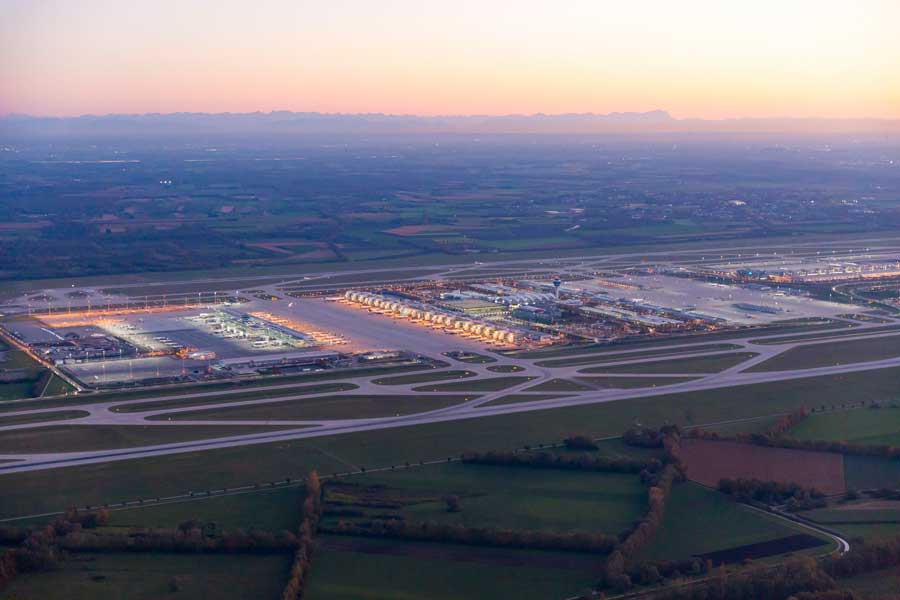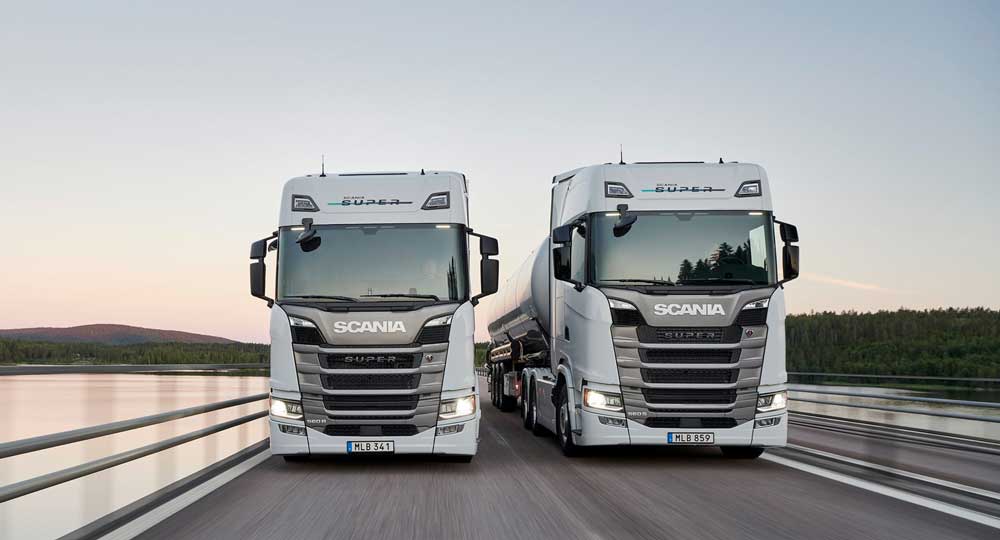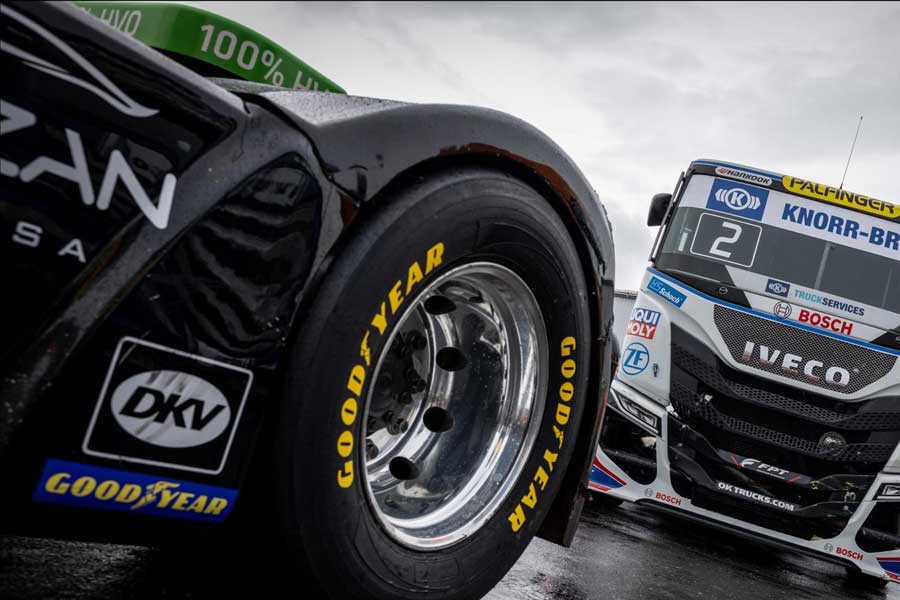Volkswagen is accompanying visitors to this year’s Hannover Trade Fair (1 to 5 April) on a trip to the world of tomorrow. The transport capsules are “PODs“, imaginary vans with a real future. Electrically powered and autonomously driving, they appear “on demand” wherever they are needed. Regardless of whether they are needed in an urban or rural space, at festivals or at sporting events. Equipped with mobile medical practices, shops, charging stations for electric cars or lounge-like restaurants and cafés. In this future, Volkswagen will be using its brands to expand its “Mobility as a service” business model by adding the “Business as a service” model.

The world of mobility is changing rapidly. The driving forces of these changes are digitalisation, connectivity and electrification of vehicles – all of these enable completely new automotive concepts. They include autonomously driving vans which Volkswagen Commercial Vehicles will be offering in the future. The Volkswagen Group is introducing its flexibly usable PODs and their potential uses in a world premiere at the 2019 Hannover Trade Fair. With them, the company is transferring the idea of the Bulli – of ideally utilised space in traffic – to an entirely new level of use and a new era.
“In Hannover, we are opening up a window on future mobility,” says Alexander Hitzinger, Member of the Management Board for Technical Development at Volkswagen Commercial Vehicles. Hitzinger continues: “As a manufacturer, we are presenting these PODs as new pathways and technologies and are thereby creating a foundation for discussions about how to shape the world of tomorrow. At the Hannover Trade Fair, I am looking forward to talks with potential new business partners and, of course, all those people who would like to join our team professionally to make these autonomous vans a reality.” As supplemental mobile spaces of the future, the PODs offer nearly unlimited design options. The “Build on Volkswagen” mobility concept envisions the automotive manufacturer and mobility service provider not as an operator of the mobile spaces of tomorrow but as a source of innovation and a business partner who supplies the know-how for their implementation. Businesses of all sizes will thereby get the opportunity to use these PODs to put new and innovative business ideas into practice – as illustrated by the examples of the café, the medical practice on demand and the mobile shop.

Here, Volkswagen Commercial Vehicles is applying its competence in modularising vehicles to create a new platform for extending mobile spaces (modular extension platform or MAP). In addition, the extended business model of “Business as a service” will integrate IT know-how for automating business processes (service mobile operating platform or MBP) and route optimisation between service providers and end customers (service booking platform or SBP). At the Hannover Trade Fair, various PODs illustrate how this approach could serve as a foundation for creating business ideas for the future. It should be clearly noted here that Volkswagen will not be operating these PODs itself; rather it will supply the hardware and software for these vehicles. Visitors to the trade fair in Hannover will be able to enter the PODs – which are up to 4.8 m long, 2.15 m tall and 1.85 m wide – and try them out. Exactly what these PODs will really look like later is of secondary importance at this point. Currently, what is much more significant is the business idea. For instance, models in the style of the SEDRIC – an autonomously-driving, electrically powered Volkswagen – would be conceivable. The Volkswagen Group’s modular electric drive matrix (MEB) will always serve as the technical foundation here. There are four sample PODs that can be experienced at the trade fair:

Health Care POD. This van brings medical care back to the country, specifically to people with chronic illnesses or for temporary uses at events of all types. It offers a lot of space for patients as well as a diagnostic chair and a diagnostic monitor. Physicians treat and communicate with the patient online in the “Health Care POD” from their practices. The technical term for this is “telemedicine“. In 2018, Baden-Württemberg became the first state in Germany to permit this treatment method. The idea behind the Health Care POD is to expand telemedical treatment options. Examples include performing blood tests or health checks in the framework of prevention programmes. The patient’s data is transmitted to the physician in real time, and smart devices (smart watches or diabetes chips) can be incorporated. The Health Care POD is also of interest for patients with chronic illnesses who typically need to drive to the doctor several times a month. In the future, the treatment room could come to them. Since the autonomous Health Care POD does not require any driver, the service could be implemented at low cost. The POD would be booked via an app.

Retail POD. Here, the shop or “Retail POD” comes to the customer. In Hannover, the idea being presented is a POD for ordering a new suit or summer dress that is tailor-made for the customer. An alternative use of this Retail POD would be in a city centre, where it might be used to order a professional person’s new outfit on their way to the next meeting or during a break. This is how it would work: The customer steps onto a highlighted surface in the POD. Then he or she looks at a touch display for guidance through the process. The first step is to search for the article of clothing and configure it. Then the Retail POD performs a body scan with laser light. Finally, the system informs the customer of the delivery time. Payment is made by card or smartphone as the customer exits. Of course, the Retail POD at the Hannover Trade Fair too is just one of countless ideas for future shopping.

Barista Bar POD. In this case, an Espresso Bar arrives where it is needed. With eight seats and high-speed internet on-board. It is a mobile café designed in the inviting Swedish “Fika” style. In Swedish, “Fika” loosely translates as a type of social break taken to converse. The “Barista Bar POD” or “Fika POD” is conceivable at hotspots of the business world, in shopping zones or at events. On-board service ensures that the cappuccino or espresso is perfectly prepared. Clearly, this gastronomy POD also reflects just one of many ideas.

Energy POD. This energy-charging POD would be used to close any gaps in the charging infrastructure. For instance, the mobile fast-charging station would know the charge levels and needs of all of the PODs networked with it within a defined zone, and it would supply them locally with energy at the right times. The Energy PODs could also be booked via digital online services for use at large-scale events such as football games or rock concerts. Just as conceivable is calling up an Energy POD individually by app to charge the electric cars of private or commercial customers. One general aspect of the Energy POD solution is that roads and cities would not absolutely need to undergo time and cost intensive restructuring to supply electric vehicles with energy.
Around the world via a multi-touch globe. The Volkswagen Group is opening a window into a new business world with its PODs at the Hannover Trade Fair. The options for shaping this world are practically infinite. The autonomous vans can house practically anything: from a pizzeria to an Energy POD that serves as a mobile charging station, a wellness spa, a 5G high-speed hotspot or a karaoke bar. What is certain is that this new world is being created now. At the Volkswagen exhibit area of the Hannover Trade Fair, visitors will not only find the described, stylised PODs, but also a multi-touch globe for getting a broader look at things. This is a spherical ultra-HD touch display – an interactive and central communication tool. Touchpoints are marked on the globe. They represent research sites of the Volkswagen innovation network and core regions that will be special focal points for future mobility.

Sites in North America, Europe and Asia. The Group’s research sites are distributed across the globe: In the USA, there is the Innovation Centre California in San Francisco. Innovation Centre Europe sites can be found in Barcelona, Potsdam and Wolfsburg. Innovation Centre Asia sites are in Shanghai, Beijing and Tokyo. In addition, there is an Innovation Centre in Tel Aviv. The mentioned core regions are the German state of Saxony; Shanghai, China; Mumbai, India; and San Francisco, California. Trade fair visitors can choose the touchpoints they want to learn more about. Many of them have reference links to the PODs on display in Hannover – interfaces between the virtual and real worlds of today and tomorrow. And they can be experienced with Volkswagen at the 2019 Hannover Trade Fair.










